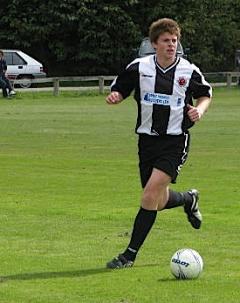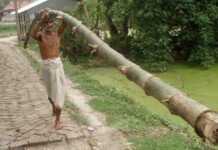 While the world’s attention affixes to the FIFA World Cup, Brazil and the City of Rio are preparing for the 8th annual World Cup for homeless men and women. 64 national teams of homeless players – including 16 women’s teams – will be united in September on Copacabana Beach for the week-long, annual football tournament aimed at beating homelessness globally.
While the world’s attention affixes to the FIFA World Cup, Brazil and the City of Rio are preparing for the 8th annual World Cup for homeless men and women. 64 national teams of homeless players – including 16 women’s teams – will be united in September on Copacabana Beach for the week-long, annual football tournament aimed at beating homelessness globally.
Over 30,000 homeless players around the world are aiming for the chance to stand proud and represent their country on the global stage in Rio. A street soccer stadium with 3 pitches holding a crowd of 5,000 will be built on Copacabana Beach with the statue of Christ the Redeemer on Corcovado Mountain as the remarkable, iconic backdrop.
Mel Young, president of the Homeless World Cup said, “The Homeless World cup is an opportunity for homeless people to move from the invisible margins of society to standing proudly on a global stage and change their lives.”
World Cup stars show support
“The Homeless World Cup can change the life of anyone, not simply to help them become a professional footballer, but so that they can develop values, human values,” said Didier Drogba, of the Ivory Coast National Football Club.
Rio Ferdinand, Captain England and Manchester United said, “The Homeless World Cup is inspirational in using the power of football to unite people living on the edge of society, to give them a fresh opportunity to prove to themselves, to prove to the world that they are no different than anyone else.”
Players Have Changed Their Lives
Since its first tournament in 2003, the Homeless World Cup has pioneered a radical level of change not seen before. 73% of players change their lives for the better by coming off drugs and alcohol, moving into jobs, education, homes, training, reuniting with families and even going on to become players and coaches and set up social enterprises enabling other homeless people to change their situation.
The 2008 Homeless World Cup in Melbourne left a $3 million legacy of 30 street soccer programs reaching the homeless across Australia.
Michelle da Silva, played for Brazil at the Copenhagen 2007 Homeless world Cup and is now a global ambassador for the Homeless World Cup. Born in the slums of the City of God she has lived her life for football and is on a courageous journey out of poverty through sport. She now plays for Brazil’s women’s under 20’s national team and is one of the players selected for the 2010 South America Cup.
Michelle says, “The Homeless World Cup is about a major life experience. You create friendships and set the right attitude to succeed in your life and in football.”
David Duke played for Scotland at the Gothenburg 2004 Homeless World Cup when he was homeless and battling issues with alcohol following the death of his father. He has since completed the Scottish Football Association coaching regimen to become a certified youth coach. He rose to become manager of Team Scotland taking them to victory at the Copenhagen 2007 Homeless World Cup. David is now a budding social entrepreneur and CEO of Street Soccer Scotland, using football to help 500 homeless people by offering weekly coaching sessions, along with an academy that provides essential life skills.
“The Homeless World Cup was the rope that allowed me to pull myself out of a very dark hole,” said Duke. “It helped me and now I can help others.”
“When homeless people say to me. ‘I can’t change’, I say, ‘yes you can. I did. So can you’.”



















